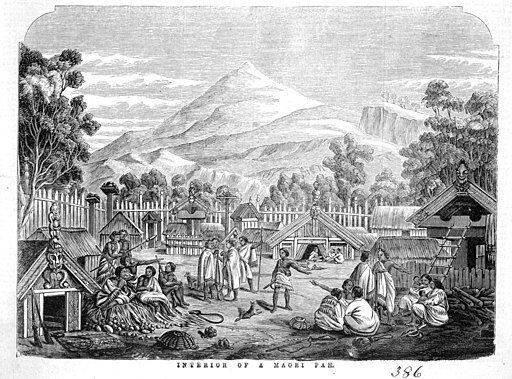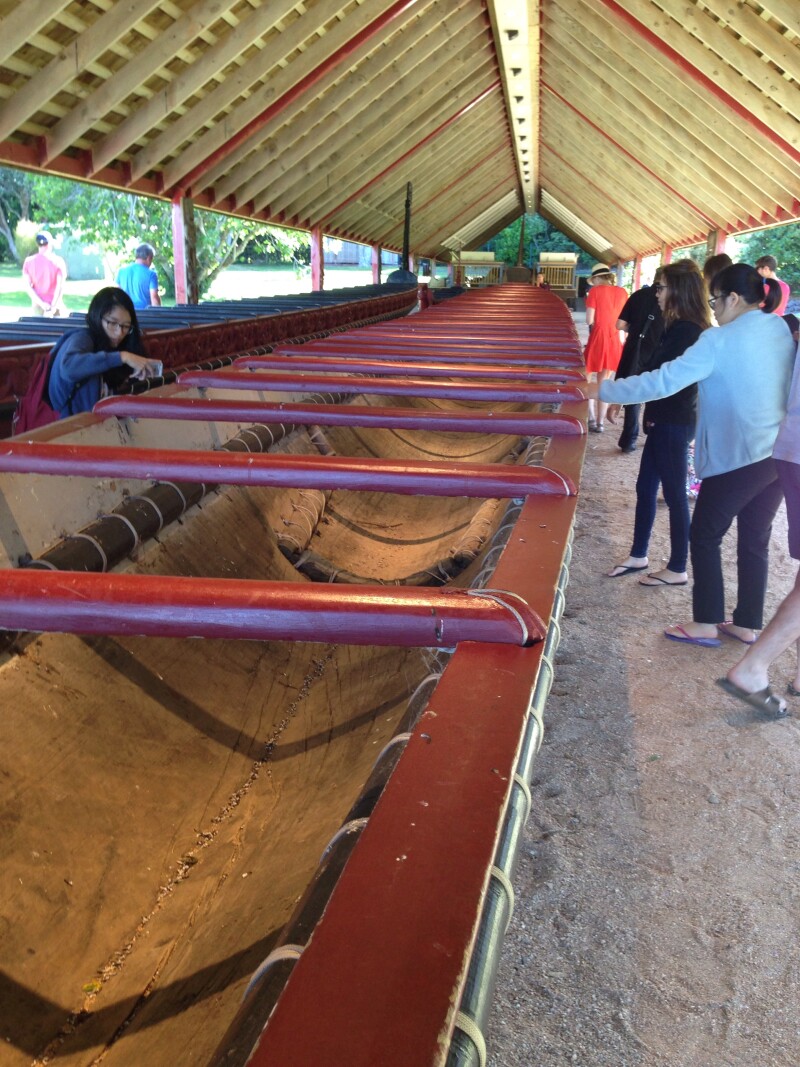New Zealand history is deep and full of twists and turns, from the discovery of this land by Māori peoples and Europeans, immigration patterns into New Zealand, and conflicts that fought to protect culture. Were any of your ancestors involved in major historical events in New Zealand?
The Māori People: The Beginning of New Zealand History
The earliest known settlers of New Zealand were the Māori people. Around 1320 AD, a man named Kupe and his group traveled from islands in the South Pacific known as Hawaiki. Māori culture is similar to others in Polynesia like Hawaii, Tahiti or the Cook Islands.

Over the next several hundred years, more Māori would settle in New Zealand. They referred to the land as Aotearoa, a name that is still used today. Many Māori’s still refer to New Zealand as Aotearoa today. Māori protected their communities by constructing pā or fortified villages. They used spear-like weapons to defend against invaders, which can now be found in ceremonies.
In their new homeland, the Māori people quickly learned how to use the rich, fertile land, introducing vegetables from Polynesia. They were expert bird hunters and fishermen.
Europe Explores New Zealand
New Zealand history continued with European explorers. In 1642, Dutch discoverer Abel Tasman landed on New Zealand. About 150 years later in 1769, British explorer and discoverer James Cook made 3 voyages to New Zealand. It wasn't until these voyages that the country was truly explored by Europeans.
In the decades that followed Cook's adventures, most people who immigrated there were from Great Britain. Some immigrants, including gold miners and convicts, came by way of Australia, going the extra distance across the Tasman Sea. From Great Britain, it took about 100 days to get to New Zealand. Such a long travel adventure was arduous for most, meaning there wasn’t a huge influx of people to New Zealand until the journey became easier.
From the early 1800s until just before the first World War, some immigrants were given cheap and even free passage. After World War II, more people migrated to New Zealand from other countries, including France, Germany, Scandinavia, and Dalmatia, not to mention more relatively local Pacific Islanders.

The Treaty of Waitangi
An important day to remember in New Zealand history is February 6, 1840, also known as Waitangi Day. The Treaty of Waitangi was signed by the British Crown to over 40 Rangatira (Māori tribal leaders) to agree to British settlement and create equal treatment of the Māori’s and the Europeans.
Interpretations of the English and Māori texts for the treaty have changed over time. These differences in interpretation have led to debates about the fairness of the treaty and how it is perceived by the New Zealand population.
Nonetheless, the country still celebrates Waitangi Day because it is considered the country’s national day. There are parades, feasts, sporting events and large celebrations throughout the country. Both Māori and New Zealanders of European descent alike celebrate this day.
King Te Wherowhero
After the signing of the Treaty of Waitangi, the Māori people began to worry about the increase in European immigrants and government presence in New Zealand. Frustrations between the Māori people and the British government eventually came to a head by 1845, especially around the North Island.
Many Māori people wanted a way to preserve their lands and their culture from European presence. Their solution was the Kīngitanga or Māori King Movement. Te Wherowhero, later known as Pōtatau Te Wherowhero, was crowned as the first Māori king in 1858. Te Wherowhero spoke about how his position of king was meant to symbolize unity. He encouraged his people to "hold fast to love, to the law, and to faith in God."
Family History and New Zealand
In New Zealand, history is important, and family history is everything. The people love to share their family stories and pass them down often when they first meet someone. Researching your New Zealand roots will bring much joy as you discover the warmth of the people and their loyalty to family.
We would like to thank Maine Tito, a New Zealand native of Māori descent, who was able to share her personal insight and knowledge of New Zealand and its culture with us so we could create this blog article.
Learn More about New Zealand
At FamilySearch, we care about connecting you with your family, and we provide fun discovery experiences and family history services for free. Why? Because we cherish families and believe that connecting generations can improve our lives now and forever. We are a nonprofit organization sponsored by The Church of Jesus Christ of Latter-day Saints. To learn more about our beliefs, click here.






